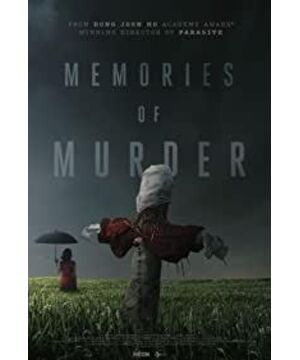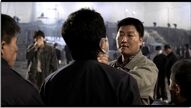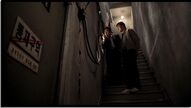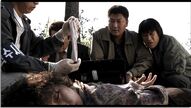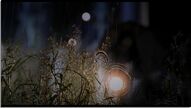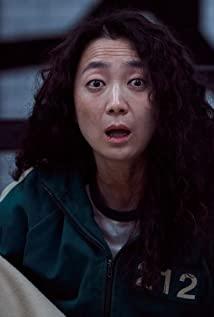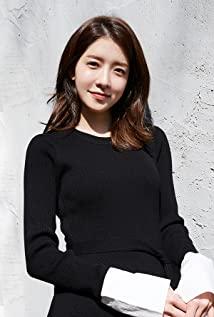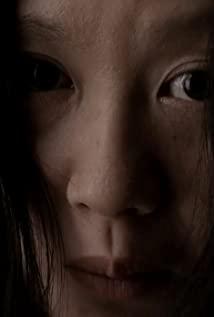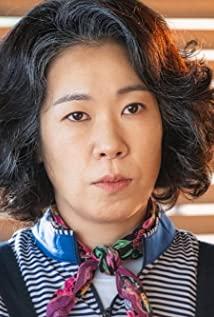——Analysis of the film "Memories of Murder" "There are no witnesses, no evidence, we need a little evidence. We don't need any witnesses, just confessions." The brief dialogue shows the changes of the two protagonists, " The meaning of the word "police" has changed. When the truth is approaching again and again, but it is destroyed again and again, when the number of dead is increasing, and when people who have crossed paths pass away because of this, the police who used to tell the evidence have turned into wanting to end the case hastily. In the face of repeated unsuccessful investigations, another policeman who used to forge evidence just to close the case as soon as possible became thinking and began to pay attention to evidence to investigate the truth. This contrast draws the audience into the film. The film "Memories of Murder" is the first feature-length film directed by Feng Junhao, which is equivalent to his "Virgo", but is known as the best film in Korean film history. The combination of rainy night, red clothes, and women is the characteristics of the murderer's murder. The film is adapted from real events and tells the "Huacheng Serial Murder Case". Two completely different police officers are jointly responsible for this case. , lure and other methods, the case made no progress, and the succession of similar cases pushed them to the brink of collapse. When new suspects were targeted again, the incompatibility of DNA verification made the case fall into new unknowns... This The film did not solve the case, and the murderer was not found, because the characters in the film did not have a perfect "halo". There are many happy movies, but they are not all the truth, and the truth is hidden in the vast sea of people, hidden among ordinary people. The director conveys to us his point of view "ordinary" with countless details. No one has the word murderer written on their faces. They are very ordinary, just like the little girl at the end of the film said "well... very ordinary". Of course, no one has the word "hero" written on their faces. They are also ordinary. The protagonist has no so-called "halo", only the collapse of reality again and again. Some people say "Memories of Murder" is the perfect movie because every setting is jaw-dropping. At the beginning of the film, the sun is shining, a peaceful field, children are playing, catching bugs, the warm yellow picture can't make people think of the content of the film, the peaceful countryside; and most of the films are cool tones, which are in line with the content of the crime story. But the ending is the same warm yellow at the beginning, same place, different time, and a peaceful picture. In fact, the director seems to be telling us that the crisis is staring at us not far away. The film uses objects to make transitions. The most visually striking part is undoubtedly the bloody barbecue after the close-up of the corpse. The audio-visual impact shocked the audience. The bloody flesh seems to symbolize something...and when filming, There are always a large number of group performances, such as fields, barbecue restaurants, etc. At one point, when it was pointed out that Bai Guanghao was not the murderer, the slow-motion shooting scenes of multiple people's fights, including watching the scene of the investigation, and the police officers in the whole area to suppress the riots, etc. It's all about the chaos of that era. Maybe it was because of the turmoil of the times that the whole case came into being, maybe it was. Talking about the whole movie, the most impressive thing is the facial close-up of Officer Park several times. In the middle and later stages of the film, when arresting the penultimate suspect in the film, the director gave Officer Park a close-up of the face, with prominent eyes. cause visual impact. Due to the limited viewing equipment, when this picture fills the entire movie theater screen, the shock is by no means ordinary. Including the last time of the film is a close-up of the police officer Park's face. When the little girl said that someone was watching the same position not long ago, it corresponds to the police officer Park once said, "Don't you know, the most annoying will go back to the crime scene" At the same time, this close-up also highlights the look of the eyes, with some surprise, some regret, and a lot of emotion in the eyes. But he's staring at you, at everyone watching the movie, because what the screen might be doing is the murderer. Hwaseong said it was not big, but at that time, in an era when we really went to investigate one by one, finding the murderer was like looking for a needle in a haystack, just like the bug caught by a child at the beginning of the film, the murderer was like one of the thousands of bugs in Tanaka, too. Ordinary, unremarkable, can't find...Everyone in the movie is an ordinary person, without extraordinary wisdom, without God's blessing, they are just a microcosm of life, no need to wear a mask , because ordinary is a mask, they don't have a "perfect halo", and we're not Conan. Movies are art, ideals, dream factories, but they only exist on that screen, but reality doesn't. Approaching the truth time and time again, and getting nothing, the movie is playing with you, and the truth is playing with you. The murderer was not brought to justice when the film was filmed, and the director made it clear that this film is for the murderer to watch, to remember the murder, to recall the murder... Whether it is the compact plot of the film and the detailed settings, The meaningful arrangement of the scenes and the striking gaze made me appreciate the charm of this film, and this is a film that is depressing but unbearable to watch over and over again. There are several close-up shots of the police officer's face. In the middle and later stages of the film, when he was catching the penultimate suspect in the film, the director gave Officer Park a close-up of the face, protruding his eyes and causing a visual impact. Due to the limited viewing equipment, when this picture fills the entire movie theater screen, the shock is by no means ordinary. Including the last time of the film is a close-up of the police officer Park's face. When the little girl said that someone was watching the same position not long ago, it corresponds to the police officer Park once said, "Don't you know, the most annoying will go back to the crime scene" At the same time, this close-up also highlights the look of the eyes, with some surprise, some regret, and a lot of emotion in the eyes. But he's staring at you, at everyone watching the movie, because what the screen might be doing is the murderer. Hwaseong said it was not big, but at that time, in an era when we really went to investigate one by one, finding the murderer was like looking for a needle in a haystack, just like the bug caught by a child at the beginning of the film, the murderer was like one of the thousands of bugs in Tanaka, too. Ordinary, unremarkable, can't find...Everyone in the movie is an ordinary person, without extraordinary wisdom, without God's blessing, they are just a microcosm of life, no need to wear a mask , because ordinary is a mask, they don't have a "perfect halo", and we're not Conan. Movies are art, ideals, dream factories, but they only exist on that screen, but reality doesn't. Approaching the truth time and time again, and getting nothing, the movie is playing with you, and the truth is playing with you. The murderer was not brought to justice when the film was filmed, and the director made it clear that this film is for the murderer to watch, to remember the murder, to recall the murder... Whether it is the compact plot of the film and the detailed settings, The meaningful arrangement of the scenes and the striking gaze made me appreciate the charm of this film, and this is a film that is depressing but unbearable to watch over and over again. There are several close-up shots of the police officer's face. In the middle and later stages of the film, when he was catching the penultimate suspect in the film, the director gave Officer Park a close-up of the face, protruding his eyes and causing a visual impact. Due to the limited viewing equipment, when this picture fills the entire movie theater screen, the shock is by no means ordinary. Including the last time of the film is a close-up of the police officer Park's face. When the little girl said that someone was watching the same position not long ago, it corresponds to the police officer Park once said, "Don't you know, the most annoying will go back to the crime scene" At the same time, this close-up also highlights the look of the eyes, with some surprise, some regret, and a lot of emotion in the eyes. But he's staring at you, at everyone watching the movie, because what the screen might be doing is the murderer. Hwaseong said it was not big, but at that time, in an era when we really went to investigate one by one, finding the murderer was like looking for a needle in a haystack, just like the bug caught by a child at the beginning of the film, the murderer was like one of the thousands of bugs in Tanaka, too. Ordinary, unremarkable, can't find...Everyone in the movie is an ordinary person, without extraordinary wisdom, without God's blessing, they are just a microcosm of life, no need to wear a mask , because ordinary is a mask, they don't have a "perfect halo", and we're not Conan. Movies are art, ideals, dream factories, but they only exist on that screen, but reality doesn't. Approaching the truth time and time again, and getting nothing, the movie is playing with you, and the truth is playing with you. The murderer was not brought to justice when the film was filmed, and the director made it clear that this film is for the murderer to watch, to remember the murder, to recall the murder... Whether it is the compact plot of the film and the detailed settings, The meaningful arrangement of the scenes and the striking gaze made me appreciate the charm of this film, and this is a film that is depressing but unbearable to watch over and over again. When we went to investigate one by one, finding the murderer was like looking for a needle in a haystack, just like the bug caught by a child at the beginning of the film, the murderer was like one of Tanaka's thousands of bugs, too ordinary, inconspicuous, and impossible to find... In the movie Everyone is an ordinary person, without extraordinary wisdom, without the blessing of God, they are just a microcosm of life, no need to wear a mask, because ordinary is a mask, they do not have a "perfect halo", and we Not Conan. Movies are art, ideals, dream factories, but they only exist on that screen, but reality doesn't. Approaching the truth time and time again, and getting nothing, the movie is playing with you, and the truth is playing with you. The murderer was not brought to justice when the film was filmed, and the director made it clear that this film is for the murderer to watch, to remember the murder, to recall the murder... Whether it is the compact plot of the film and the detailed settings, The meaningful arrangement of the scenes and the striking gaze made me appreciate the charm of this film, and this is a film that is depressing but unbearable to watch over and over again. When we went to investigate one by one, finding the murderer was like looking for a needle in a haystack, just like the bug caught by a child at the beginning of the film, the murderer was like one of Tanaka's thousands of bugs, too ordinary, inconspicuous, and impossible to find... In the movie Everyone is an ordinary person, without extraordinary wisdom, without the blessing of God, they are just a microcosm of life, no need to wear a mask, because ordinary is a mask, they do not have a "perfect halo", and we Not Conan. Movies are art, ideals, dream factories, but they only exist on that screen, but reality doesn't. Approaching the truth time and time again, and getting nothing, the movie is playing with you, and the truth is playing with you. The murderer was not brought to justice when the film was filmed, and the director made it clear that this film is for the murderer to watch, to remember the murder, to recall the murder... Whether it is the compact plot of the film and the detailed settings, The meaningful arrangement of the scenes and the striking gaze made me appreciate the charm of this film, and this is a film that is depressing but unbearable to watch over and over again.
View more about Memories of Murder reviews


